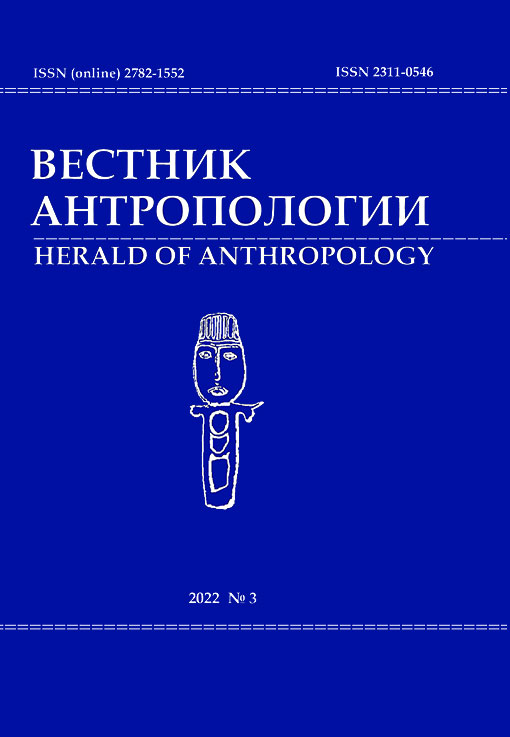Frontier Antrailpology: on the Trails and Roads in the Lives of Amur Evenks
10.33876/2311-0546/2022-3/221-232
Abstract
Based on a comparison of the two Evenk settlements in Russia’s Khabarovsky Krai and Amurskaya Oblast, this paper argues that preservation of traditional culture by an ethnic minority group depends on how well it preserves its own systems of axes. It shows also that while trails that are capable of keeping national heritage alive and preventing minorities from assimilation, modern highways cause traditional culture to decline as they destroy their ties with the environment that may eventually lead to its extinction. It states that while both economists and governmental agencies view road construction as an “inevitable good”, anthropologists shall pay attention to the study of trails as repositories of traditional culture and to their preservation. To achieve this goal, this paper suggests developing Antrailpology as a subdicipline within social anthropology that would elaborate on the role of trails and other “folk infrastructure” in the life of minority ethnic groups.





















